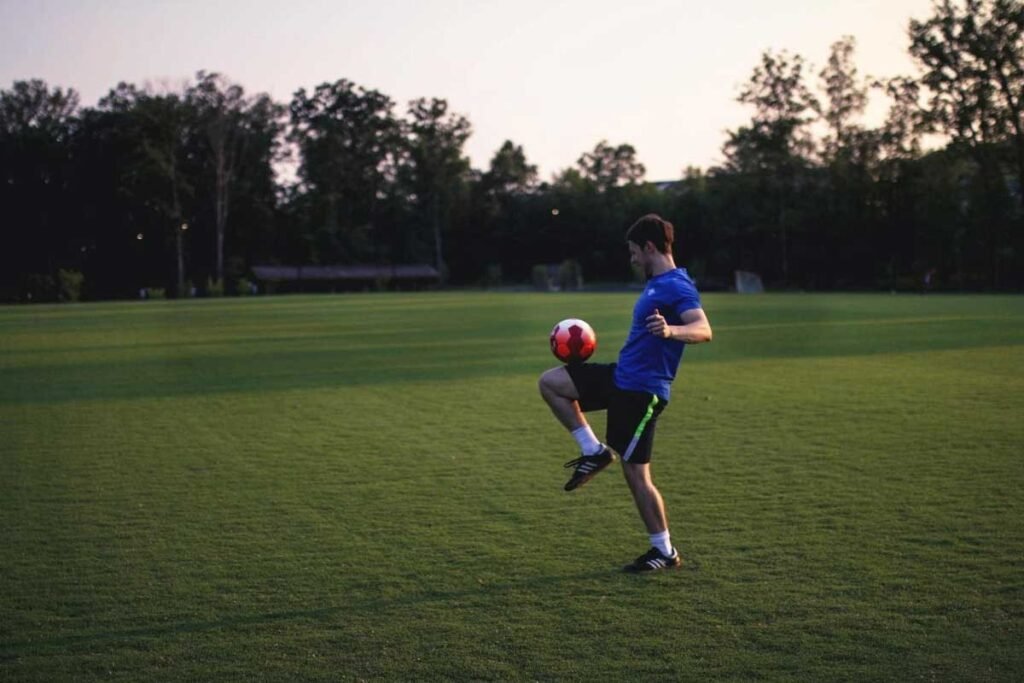Many of us go through life with concepts of self-development in mind. This could be personal or professional self-development, or thoughts about how to help a child successfully develop. Self-development can also come in many forms.
However, while we hear a lot of discussion about mental, emotional, and spiritual development, we often forget about what physical development can do for us. We don’t just mean in terms of building a better body or growing muscle, either. In fact, many psychologists recommend sports achievements as a great way to promote self-esteem and build tools for personal development.
Self-Development: Definition of Personal Growth
How do we define self-development? What does it mean to become better and grow above yourself? Many theorists define self-improvement as a process of change. We set out to achieve something and, whether we succeed or fail, we gather information and tools that change our perspective and help us in the future.
Self-development, individual initiative, and organizational loyalty are related. When we set out to achieve a goal, we learn how to motivate ourselves. This individual initiative comes from within. It’s the reason that we show up for sports practice in the morning when we’d rather stay in bed. Organizational loyalty refers to your commitment to something larger and outside of yourself. This can be the sports team you show up for and who rely on your participation.
Sport is an ideal arena in which to learn these skills, especially for young people and adolescents. This mixture of self-motivation and loyalty can help you achieve complex goals later in life. The skills you learn participating in sports are also not limited to the playing field. This knowledge can be applied in various areas of your life. For example, if you want to write a book or start a business as an adult, you will need both self-motivation and the ability to collaborate responsibly with others.
How Do Sports Promote Self-Development?
Builds Responsibility
What are professional and self-development goals for administrative assistant candidates? Do they have anything to do with playing sports as a teenager? Some experts think that they do.
Participating in team sports is good for self-development as it creates a sense of responsibility. Young people who are encouraged to join sports teams develop a bond with their group. They then come to see themselves as an important part of this group with a responsibility to perform for their teammates.
This can foster a sense of maturity and lead to the development of positive traits, such as punctuality and reliability. These are important professional traits that will help you as you transition into a career. Definitely, something to keep in mind if you want to help young people develop.

Increase Self-Worth
Psychologist Abraham Maslow argued that decent conditions impede human self-development. Maslow was famous for developing concepts of self-esteem and the negative role that poor self-esteem, or self-worth, could play in people’s lives. Those with low self-worth can feel that they don’t belong and may have problems meeting goals or forming relationships.
Playing sports can help build self-worth by helping the player develop meaningful skills. This can instil them with self-belief as they will know that they are able to learn and grow. This sense of self-belief and self-confidence can be applied across many different scenarios later in life.
Teach Discipline
A regular sports commitment gives you something to show up for. Building positive commitments like this can teach values, like self-discipline and self-motivation, which are professionally important. Unless you want to always work with a boss breathing down your neck, self-motivation will carry you a long way. It can mean the difference between being your own boss one day and always wondering what if.

Promote a Positive Attitude
Sports are not only important for the self-development values they can teach to young people. They can also be extremely valuable for adults. A common self-development synonym is a self-improvement. This suggests that you literally get better as you change and develop.
Exercise has been shown to boost endorphins (happy hormones in the brain). Team sports have also been shown to increase feelings of belonging and self-worth; the feeling that we are part of a community. Combinations of hormonal shifts, more social fulfilment, and a generally more active week can do wonders for your mood and create a positive outlook. Many people feel that playing sports regularly significantly benefits them and that this helps them feel more positive and in control across other parts of life.
Develop Problem Solving Skills

Sports require sets of complicated skills and movements that must be memorized and executed quickly. Team games often require strategic thinking and the ability to solve problems as a team. These skills are crucial in workplace environments and can help create strong employees and managers across all types of careers.
Problem-solving skills can also be developed and strengthened at any age. Physical activity has also been shown to have a positive effect on the brain, sharpening our reactions and increasing mental flexibility. Building a regular team sports practice into your week can help you feel better and help you think faster. You will likely notice an improvement in your performance at work and an overall lift in your mood, which can lead to more positive changes all-around.
Conclusion
Sports and exercise should absolutely be part of any good self-development plan. Activity can improve your mood and mental discipline, while team sports can build your social circle and strengthen teamwork skills. No matter how old you are, or which sports you enjoy, including more activity in your life will yield positive results across the board. You never know, this small change could help set you up for success.
Final Call: Do you make time to play sports during the week? Which areas of your life would you like to improve in? Has playing sports improved your professional or personal development? Share your ideas in the comments!


